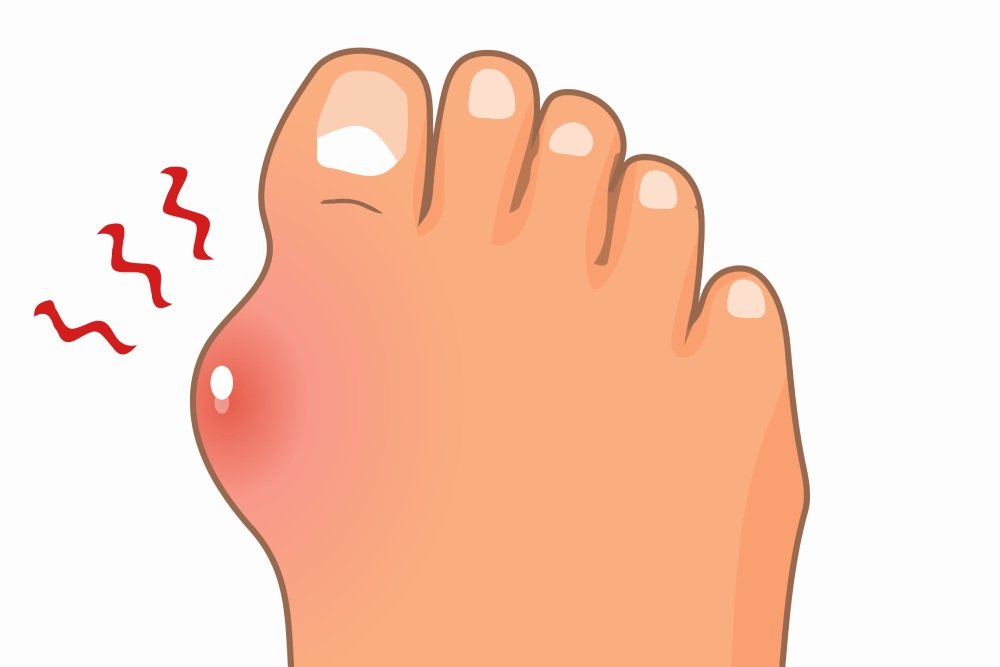
Gout
Middletown Foot & Ankle – your trusted podiatrist treats patients with gout in New Jersey towns including Keyport, Eatontown, Tinton Falls, Belford, and surrounding areas
Understanding Gout
Gout is a form of inflammatory arthritis characterized by sudden, severe attacks of pain, swelling, redness, and tenderness in the joints, often affecting the big toe. It occurs due to the buildup of uric acid crystals in the joints and surrounding tissues.
Common Causes of Gout
- High Uric Acid Levels: Gout develops when there is an excess of uric acid in the blood, leading to the formation of urate crystals in the joints.
- Dietary Factors: Consuming foods high in purines, such as red meat, organ meats, seafood, and alcohol, can contribute to elevated uric acid levels.
- Genetics: Family history of gout increases the risk of developing the condition.
- Medical Conditions: Certain medical conditions like obesity, hypertension, diabetes, and kidney disease can predispose individuals to gout.
Symptoms of Gout
- Sudden onset of pain: Intense pain in the affected joint, often starting at night or early morning.
- Swelling and inflammation: Joint becomes swollen, red, and tender to the touch.
- Limited range of motion: Difficulty moving the joint due to pain and stiffness.
- Warmth: Joint may feel warm to the touch due to inflammation.
- Fever: Occasionally, fever may accompany severe gout attacks.
Diagnosing Gout
If you experience symptoms of gout, obtain an evaluation from our podiatrist . Our foot doctor specialize in diagnosing gout through a combination of physical examination, assessment of symptoms, and laboratory tests to measure uric acid levels in the blood and joint fluid.
Treatment Options
Effective management of gout focuses on relieving pain during acute attacks and preventing future flare-ups:
- Medications: Nonsteroidal anti-inflammatory drugs (NSAIDs), colchicine, or corticosteroids are commonly prescribed to alleviate pain and reduce inflammation during acute gout attacks.
- Lifestyle Modifications: Adopting a low-purine diet, reducing alcohol consumption, staying hydrated, and maintaining a healthy weight can help lower uric acid levels and prevent gout attacks.
- Medication to Lower Uric Acid: If you have recurrent gout attacks or high uric acid levels, your podiatrist may prescribe medications such as allopurinol or febuxostat to prevent uric acid production or increase its elimination.
- Joint Aspiration: Removing fluid from the affected joint to relieve pain and analyze urate crystals under a microscope.
Preventing Gout Complications
- Manage Risk Factors: Control underlying conditions like obesity, hypertension, and diabetes.
- Stay Hydrated: Drink plenty of water to help flush out uric acid from the body.
- Monitor Diet: Limit intake of purine-rich foods and alcohol that can trigger gout attacks.
- Regular Monitoring: Schedule regular follow-up appointments with your podiatrist to monitor uric acid levels and adjust treatment as needed.
